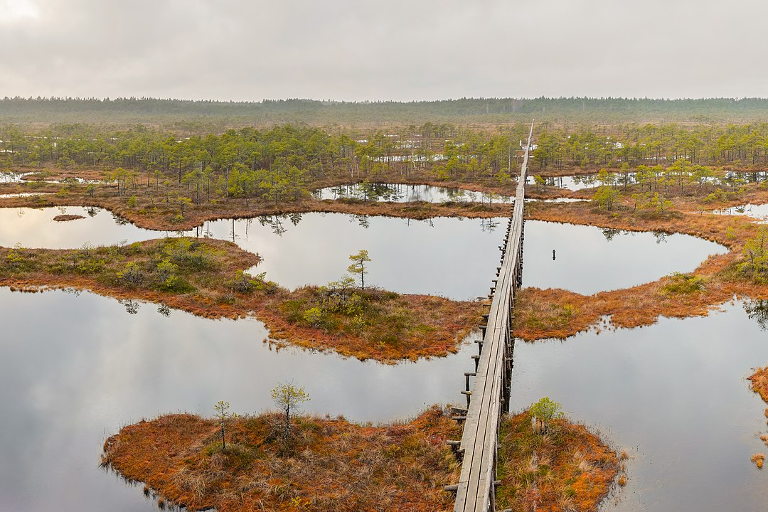Around the world, across cultures and time, water has manifested itself as both life-creating and life-destroying. Never static, it constantly changes and transforms those in its wake. This is profoundly true for Katherine Egland.
Chair of the NAACP’s Environmental and Climate Justice Committee and founder of Education, Economics, Environmental, Climate and Health Organization (EEECHO) in Gulfport, Mississippi, Egland has felt “quite a connection and relationship to water” throughout her life.
Egland has been an activist since she was ten years old in the segregated South. There, she marched with Dr. Martin Luther King Jr., shopped in slain civil rights leader Vernon Dahmer’s family store, and was one of the first children to desegregate Hattiesburg Public High School.
Early on, she recognized that the civil rights movement was a “struggle for human dignity … the dignity to sit where you want to sit, to be able to eat in a restaurant, to be able to drink out of an unlabeled fountain,” she said.
As a little girl, she was perplexed by separate water fountains. The cold water for “Whites” only bubbled through fountains coated with condensation; the warm water flowing through “Colored” fountains was decidedly different.
“My youthful advocacy was against segregated water fountains and today’s advocacy is against disproportionate water quality and disparities of flooding,” she said.
She has traveled the world doing impressive work on behalf of civil rights and environmental justice, including meeting with Nelson Mandela. But education was her original calling. She understood the need for early childhood education long before Mississippi had public preschool and kindergarten.
“One of my proudest accomplishments in life is establishing Special Programs for Advancing Children’s Education (SPACE) Learning Academy, a unique, contemporary accelerated pre-K, Kindergarten early education program and K-6 Summer Youth Enrichment Camp,” she said. “Since my retirement in 2004, former students and their parents continue to boast about their experiences and credit SPACE for their successes. It is the most exhilarating feeling ever.”
Just a year into her retirement, Hurricane Katrina — one of the five deadliest hurricanes to ever strike the U.S. — changed everything for Egland. Her home was severely damaged and her community left devastated.
“It was the drowning deaths of two of our dearest family friends to the rapid surge waters of Katrina that caused me so much anguish. Even climbing into their attic wasn’t a high enough refuge to save them,” she said.
“That was the moment I took off my earrings,” Egland said of her propulsion into environmental justice activism.
She became a powerful force in the post-Katrina Gulf restoration effort and then again five years later when the BP Deepwater Horizon Gulf oil spill contaminated the waters four blocks from her home. Since that time she has amassed a long list of accomplishments, but the soft-spoken Egland prefers to focus on current environmental threats and injustices, as well as the advocacy groups invaluable to the work at hand.
Egland and Gulfport-based EEECHO have brought impressive pressure in their fight to keep their community safe. Currently, they focus on halting development on critical wetlands that protect from flooding two historically-important African American communities: Turkey Creek and Forest Heights. The proposed development would sit on contaminated soil from a former fertilizer plant, placing vulnerable nearby communities at further risk. Anthropocene Alliance’s partnership with EEECHO aided in securing pro bono legal representation. Bolstered by volunteer scientific experts, and supported through a partnership as well with the Deep South Center for Environmental Justice (DSCEJ), an appeal seeking to stop future development has been filed.
EEECHO also led the Coalition to Protect and Preserve Forest Heights’ efforts in opposition to a proposed connector road that would destroy over 600 acres of wetlands and exacerbate flooding in the historic Turkey Creek Community. The Coalition is supported by organizations and individuals with an outreach of over 7 million. Its work resulted in the City of Gulfport’s inclusion of a long-awaited and much-needed levee in its recent budget.
With education close to her heart, Egland is proud of a curriculum created through a collaboration among residents, EEECHO, and Thriving Earth Exchange. That curriculum, Assessing Flood Risks for Community-Led Action, focuses on engineering with nature, the importance of wetlands, and sea-level rise. Students from Gulfport High School benefited from the lectures and a wetlands site visit. The goal of this project was to bring objective scientific evidence and understanding to the questions and priorities of residents around flooding and air quality, so the community can use that science to make decisions and take action alongside elected officials.
Especially gratifying for Egland is the community garden and fruit orchard on nine acres situated on a former neighborhood that flooded on a regular basis. After the federal buyout, all the homes were demolished and slabs were removed. The city owns the property and was instrumental in providing irrigation and support for the project. From destructive waters spring growth.
The ironic, ever-changing tides of life are not lost on Katherine Egland. She humbly continues fighting “the struggle for human decency” she began as a 10 year-old.
“I’m always mindful that I stand on the shoulders of so many people and could never have accomplished anything on my own,” she said.
Teaser photo credit: By Abrget47j – Own work, CC BY-SA 3.0, https://commons.wikimedia.org/w/index.php?curid=30524695





